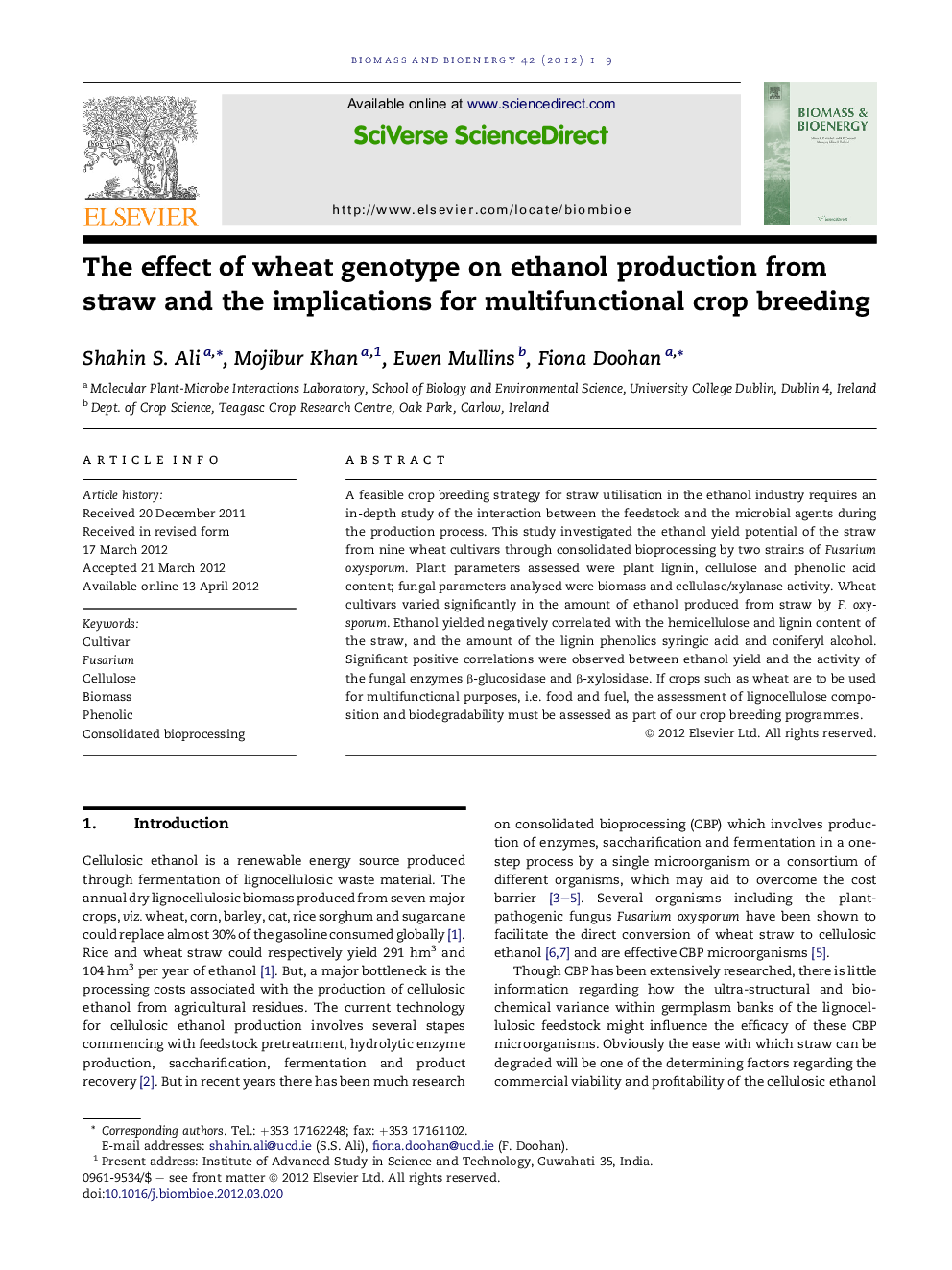| Article ID | Journal | Published Year | Pages | File Type |
|---|---|---|---|---|
| 677427 | Biomass and Bioenergy | 2012 | 9 Pages |
A feasible crop breeding strategy for straw utilisation in the ethanol industry requires an in-depth study of the interaction between the feedstock and the microbial agents during the production process. This study investigated the ethanol yield potential of the straw from nine wheat cultivars through consolidated bioprocessing by two strains of Fusarium oxysporum. Plant parameters assessed were plant lignin, cellulose and phenolic acid content; fungal parameters analysed were biomass and cellulase/xylanase activity. Wheat cultivars varied significantly in the amount of ethanol produced from straw by F. oxysporum. Ethanol yielded negatively correlated with the hemicellulose and lignin content of the straw, and the amount of the lignin phenolics syringic acid and coniferyl alcohol. Significant positive correlations were observed between ethanol yield and the activity of the fungal enzymes β-glucosidase and β-xylosidase. If crops such as wheat are to be used for multifunctional purposes, i.e. food and fuel, the assessment of lignocellulose composition and biodegradability must be assessed as part of our crop breeding programmes.
► Wheat genotype can affect the degradability and ethanol yielded via CBP of straw. ► There was significant negative correlation between ethanol yield and both hemicellulose and lignin content of the straw. ► Lignin composition of the straw also plays a major role in the digestibility and ethanol yield.
